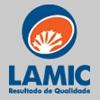Explore all the information on
Feedstuffs
Welcome to the page about Feedstuffs of Engormix; a source of knowledge on Feedstuffs.
1. Introduction Oats (Avena sativa L.) have become an increasingly important cereal crop due to their health benefits, particularly in reducing the risk of coronary heart diseases (Thies et al., 2014), and their growing incorporation into human diets (Rasane et al., 2015). For example, corresponding with increased oat consumption trends, oat production in the United Kingdom reached 986 thousand tonnes in 2024, representing a 19 % increase compared to the previous year (DEFRA, 2024)....
Comments : 0
Recommendations: 0
INTRODUCTION In the tropics, grasses are the main source of food for livestock; however, during the drought season, growth and quality of forages is low, affecting animals productivity. Therefore to evaluate alternatives for forage replacement during that period, turns necessary. Sugarcane is a crop produced in more than 100 countries worldwide, and its biomass production exceeds that of any other forage, making it a good animal feed strategy for sustainable agricultural...
Comments : 1
Recommendations: 0
Recommended events
May 5, 2026
Canada - Alberta - Edmonton
Michael Joseph, Assistant Professor & Extension Specialist at NC State University, discusses the potential and caveats of using alternative protein sources in animal production during this Engormix interview. ...
Comments : 1
Recommendations: 0
Author details: 1 Department of Animal Sciences and Industry, College of Agriculture, Kansas State University, Manhattan, KS, USA 66506-0201; 2 Gordon Denny, LLC, Thornton, CO, USA 80602; 3 Agri Networks Management, Old Saybrook, CT, USA 06475; 4 Bunge North America, Chesterfield, MO, USA 63017; 5 Agricultural Research Service, U.S. Department of Agriculture and Divisions of Plant Sciences and Animal Sciences, University of Missouri, Columbia, MO, USA 65211; 6 Department...
Comments : 1
Recommendations: 0
Introduction Barley is one of the main cereals produced in Norway and is used in broiler feed in low amounts due to high content of non-starch polysaccharides (NSP) (Bedford 1995; Knudsen 2014; Svihus and Gullord 2002) and lower energy value compared to maize, wheat or sorghum (Choct and Annison 1990; Khalil et al. 2020). The NSP fractions comprising soluble βglucans and arabinoxylans have gel-forming characteristics and are known to increase intestinal viscosity (Choct 2006),...
Comments : 0
Recommendations: 0
1. Introduction Fusarium head blight (FHB) is one of the most significant wheat diseases and is responsible for causing some of the most severe losses in wheat production [1]. According to existing data released by the FAO [2,3], approximately 25% of harvested grain, including wheat, is contaminated with toxins. The global grain yield in 2018 was 2250 million tons; of this, 800 million tons was wheat, and similar yields have been seen since then, with increasing tendency. Of this...
Comments : 0
Recommendations: 0
Q: Can you tell us how you arrived at the proposed optimal ratios and amounts of true digestible AAs in diets that you have developed in your research? A: Results of studies by my group have established the concept that animals have dietary requirements for not only...
Comments : 5
Recommendations: 5
Respiratory diseases hurt swine operations on both the input and output side of the equation: feed costs rise as performance plummets. New research suggests that by using soybean meal, you can mitigate these challenges as a cost-effective tool for maintaining pig health and performance during outbreaks. Respiratory Diseases Present Challenges When pigs are infected with respiratory diseases such as swine respiratory disease (SRD) and porcine...
Comments : 1
Recommendations: 0
1. Introduction Reducing the particle size of cereal grains increases the digestibility of starch and energy by pigs (Huang et al., 2015; Rojas and Stein, 2015; Lee et al., 2024) and it is likely that surface area of grain particles and interactions between particles and digestive enzymes are increased by reducing particle sizes. In contrast to the demonstrated improvement in the digestibility of starch and energy, effects of particle size reduction on digestibility of amino...
Comments : 0
Recommendations: 0
Michael Joseph, Assistant Professor & Extension Specialist at NC State University, explains how the food and feed industries are producing more with less, finding strategies to become more adaptable and efficient, in this Engormix interview. ...
Comments : 0
Recommendations: 0
This analysis is based on the book chapter "Relevant fungal species and associated mycotoxins in storage," authored by Carla Cervini, Andrea Patriarca, Carol Verheecke-Vaessen, and Angel Medina, published in Mycotoxins , DOI: 10.1163/9789004724969_011.
While pre-harvest contamination receives significant attention, storage is identified as the most critical stage in the food supply chain where fungal growth and mycotoxin accumulation can severely impact food and feed safety....
Comments : 0
Recommendations: 0
INTRODUCTION Due to its nutritional value, corn (Zea mays L.) is one of the main ingredients used in the diets for poultry worldwide. Brazil is one of the largest corn producer and exporter countries (USDA, 2021), and, according to ABIMILHO (2023), about 50% of the corn produced in Brazil in the 2019/2020 harvest was used for animal consumption, reaching more than 54% in the 2022/2023 harvest. The grain is globally traded as a commodity because it is a homogeneous product from which...
Comments : 0
Recommendations: 0
Background – what are aflatoxins and their impacts Aflatoxins are highly toxic compounds produced by certain strains of Aspergillus fungi, particularly A. flavus and A. parasiticus. These toxins, regulated at very low levels (parts per...
Comments : 0
Recommendations: 0
Quality of stored grain must be maintained through the entire summer period, until stocks can be rotated in the fall. Summer storage is challenging because warm temperatures and high relative humidities put even dry grain at risk for mold and insect activity. The chart below explains why summer aeration can create either continued mold growth or excessive moisture shrink (below 14% moisture corn; 12% moisture soybeans). The horizontal lines are the market standard moistures for corn...
Comments : 0
Recommendations: 0
Extreme rains in northwest Iowa have caused instances of stored grain being covered with floodwater. According to current Food and Drug Administration policy, grain inundated by uncontrolled river or stream water is considered adulterated and must be destroyed. The current situation is one of river water flooding rather than of rain-driven pooled water in low ground, for which there are salvage options. River-based floodwaters can bring in many hazards and rapid spoilage. Flooding...
Comments : 0
Recommendations: 0
The use of barley in broiler diets is limited because of the presence of β-glucans, which negatively influence nutrient utilisation and bird performance. These negative effects may be partly overcome by exogenous carbohydrases containing β-glucanases. In the current study, the influence of a multi-component carbohydrase (Ronozyme multigrain, DSM Nutritional Products, Singapore) on nitrogen-corrected apparent metabolisable energy (AMEn; assay 1), and, apparent ileal digestibility...
Comments : 0
Recommendations: 0
I. INTRODUCTION Necrotic enteritis (NE) is of great concern to the poultry industry due to its deteriorating impact on production and increasing mortality, resulting in a US$6 billion global economic loss (Wade and Keyburn, 2015). The causative agent of NE is Clostridium perfringens, a gram-positive spore-forming anaerobic bacterium. The subclinical form of NE is financially more devastating than the clinical form. This is due to a lack of obvious symptoms resulting in a delayed...
Comments : 0
Recommendations: 0
I. INTRODUCTION Microbial enzymes are now routinely used in broiler chicken diets to reduce the effects of antinutritive factors (ANF) in feed and/or improve the digestion of nutrients (Bedford, 2011). There is a suite of enzymes that target ANF such as non-starch polysaccharides (NSP) and phytic acid as well as products which improve the digestion of nutrients such as protein and minerals. The major cereals used in poultry diets are wheat, maize, sorghum and barley. The objective of...
Comments : 0
Recommendations: 0
In the world of animal feed manufacturing, some parameters shout: protein levels, energy values, additive profiles. Others whisper, quietly shaping performance from behind the scenes. Particle size is one of those silent drivers. And yet, for monogastric species like pigs and poultry, it can be the difference between optimal feed conversion and costly inefficiencies. I’ve spent over three decades in feed process technology, and if there’s one...
Comments : 0
Recommendations: 3
1. Introduction Influenza A virus (IAV) is an enveloped RNA virus, a member of the Orthomyxoviri dae family, and is known to infect humans, mammals, and birds [1]. The virus is subtyped based on the antigenic cross-reactivity and sequence identity of two surface glycoproteins, namely, hemagglutinin (HA) and neuraminidase (NA) [2]. Excluding the recently identified H17N10 and H18N11 in bats, 16 HA and 9NAIAV subtypes have been identified in mammals and birds to date...
Comments : 1
Recommendations: 1











.jpg&w=3840&q=75)




.jpg&w=3840&q=75)














